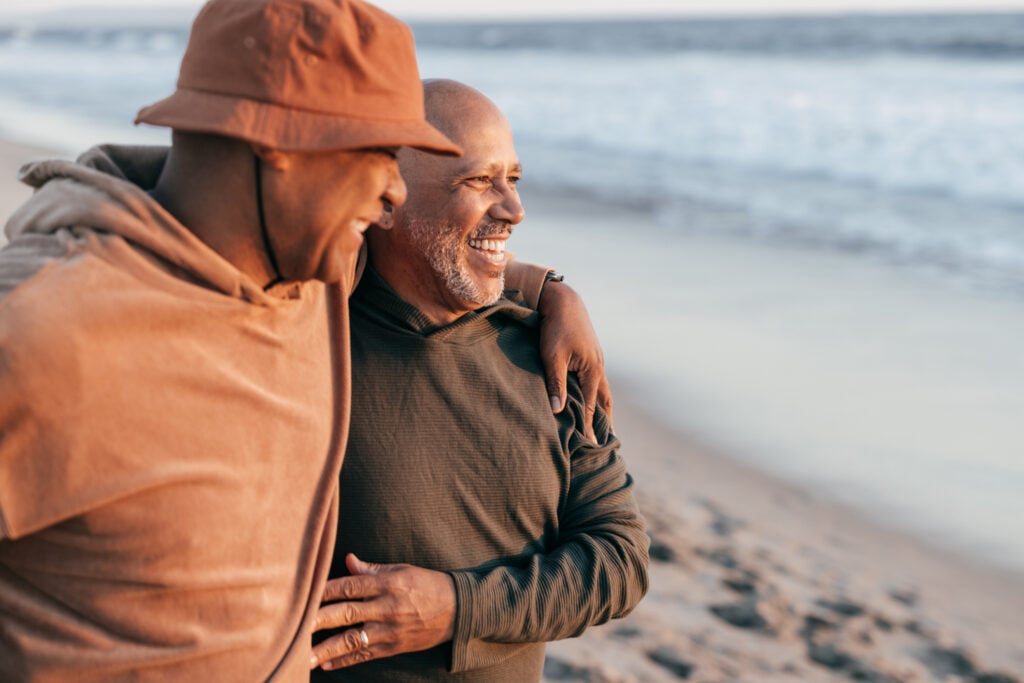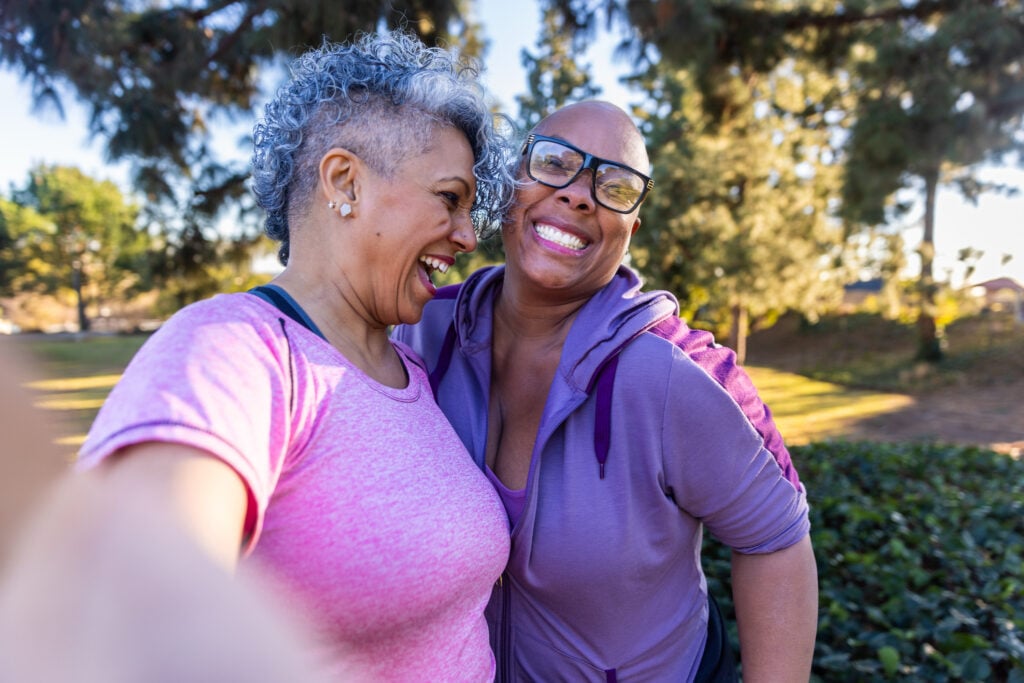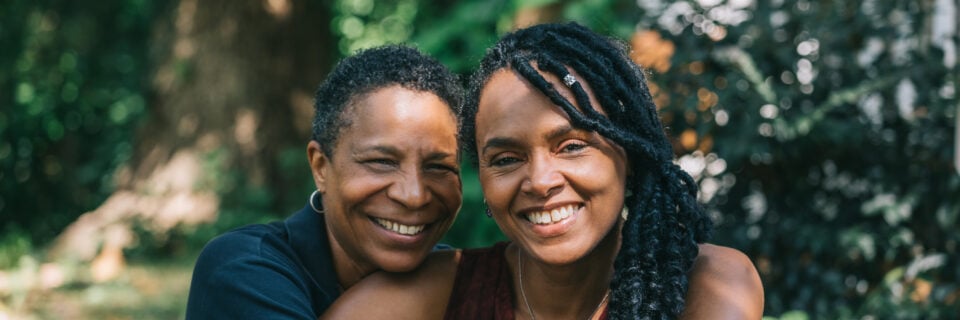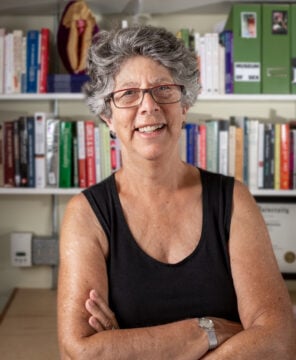Part 2: What We Can Do to Support the LGBTQ+ Community
In our continuing series about Pride: Then and Now, I am discussing the recent backlash against LGBTQ+ individuals and the power of allies to protect the rights of all LGBTQ+ individuals, including our elders, who are the pioneers in Pride. To learn more about the history of Pride Month, check out Part 1.
Backlash and Impacts
With all of the advances in equality for LGBTQ+ adults, we are currently witnessing a backlash against LGBTQ+ rights. This is of particular importance to our LGBTQ+ elders and their allies. A recent example is removal of certain groupings from the website of a national historical monument.

In 2016, the Stonewall Inn became the country’s first national park dedicated to LGBTQ+ history. However, in March, 2025, however, the National Park Service removed transgender and queer from their website references to the park. Erasure of foundational elements of the gender and sexuality continuum leaves a chilling effect on those who have labored for decades for liberation. Miss Major Griffin-Gracy offered her own unique perspective on the history of Stonewall and the need to include transgender populations:
“The thing about it, for me, after the fact, was it got whitewashed and taken away from my girls and me. Because it was a bar for mostly transwomen, gender-nonconforming people, the oddities of New York at the time. It was a lone little spot that Stonewall was. So then let’s give credit to the people who were there, who started this, you know? When they started this LGBT thing, it’s like, OK, T should be first! It was our club. And we went there. And we suffered the most beatings. My community, we’re pretty used to fighting. We’re going to take our wigs off and kick some… Put my wig back on and go home. So it was a matter of taking this from us.” Over the past 50 years, Pride liberation rallies have become more like parades. Today, perhaps given the current political attacks, many Pride marches have connected back to the origins of the gay liberation movement. They’re going back to the roots of the first liberation marches, based more in trans leadership and communities of color.
Allies are Essential
There’s an old bumper sticker that says, “I’m straight but not narrow.” I love that slogan. It speaks to the eternal need for strength from our allies. LGBTQ+ discrimination affects us all, whether we identify as part of the community or not. And we each have a part to play in ending discrimination.
Mandy Carter, a Black lesbian who has been at the forefront of major LGBTQ+ victories over the past 60 years, explains what she calls the power of one:

“Jack Hickey, my social studies teacher, brought in this young white staffer from a group that I had never heard of before, the American Friends Service Committee (AFSC). That one forty-minute class changed my life. This is 1966. While AFSC was a predominantly white peace group, they wanted to be an ally in and for the civil rights movement. He gave us the history of the Quakers. And then he talked about the power of one. He said, ‘Each and every one of us has a moral compass. And because of that, each and every one of us has the potential to impact change.’ They had an AFSC high school work camp up in the Pocono Mountains and I went. It was the very first time I heard the name Bayard Rustin. And, it was the first time that I heard the word gay.”
Each of us has a role to play. If you wonder how your one voice could matter, take a page from Mandy Carter’s words about the power of one. Everyone’s participation makes a difference. And the work to ensure safety for everyone continues throughout the entire year. Only love can conquer hate. As Rev. Dr. Martin Luther King, Jr. once said:
“Returning hate for hate multiplies hate, adding deeper darkness to a night already devoid of stars. Darkness cannot drive out darkness; only light can do that. Hate cannot drive out hate; only love can do that.”
What We Can Do to Make a Difference
If someone in your community is acting in a way that creates pain for another based on their sexual or gender identity, your voice can truly make a difference. Try on the role of an ally. And rather than attacking them, try what I like to call “the love offensive.” Shower them with love and offer real-life examples from your life about the need for LGBTQ+ inclusion. Talk about someone you know or someone who has made a difference in your life. Someone who has made a difference across the globe. Here’s a wonderful example from the marriage equality campaign in Ireland, as a reminder of what it means to be an ally.
Sometimes we need to hear from our friends and family and community. If two people of the same gender are holding hands or being affectionate in your community, send them some love or a smile or a gentle acknowledgement. Remember that love can flow all along the sexual and gender continuum. As older adults, we have experience, wisdom, and time to offer younger generations. Being who we are authentically and becoming an ally can make a huge difference. A sweet challenge for all of us this Pride Month and for the rest of the year.
Top Tips: How Allies Can Support the LGBTQ+ Community
As allies to LGBTQ+ members of your community, I recommend we continue to follow these simple guidelines all year long:
- Stay Educated. Keep current on LGBTQ+ issues as they evolve and keep learning about social, political, and legal challenges faced by the LGBTQ+ community. Don’t wait for LGBTQ+ people to educate you. Avoid assuming you know someone’s sexual or gender identity. Be open to learning.
- Speak Up Against Prejudice. Be that person to challenge humor or comments that might be interpreted as prejudicial. And stand up when an LGBTQ+ community member faces prejudice.
- Be curious. Listening and supporting LGBTQ+ people in your community can improve the whole community.
- Support LGBTQ+ Rights. Support and advocate for inclusion in policies. Donate and volunteer with LGBTQ+ groups. Make your community more inclusive and safe.
- Be humble. We all make mistakes. Don’t get defensive if corrected. Apologize, learn, and strive to improve in the future.


 Dr. Jane Fleishman
Dr. Jane Fleishman